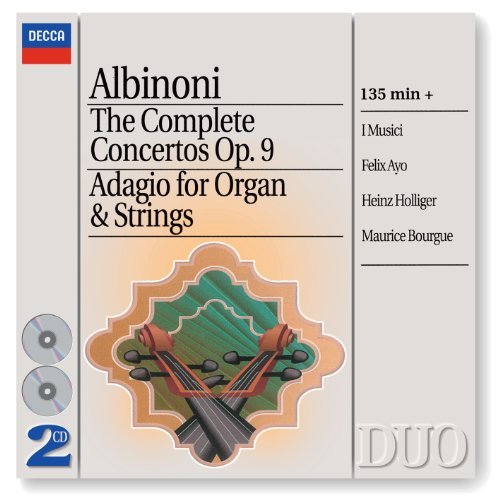Music |
Albinoni (or is it Giazotto?): Adagio in G Minor
By
Published: Jan 02, 2018
Category:
Classical
Over the holidays, the Times published a compelling video: how, in 90 minutes, Ed Sheeran made the biggest hit of the year. It’s not what you expect from the Times: a master class — for all ages — on creativity and collaboration. Please watch it; you won’t regret the 8 minutes, 45 seconds.
At one point in the video, one of Sheeran’s musicians tells us that he brings Lego to a session and has the famously impatient Sheeran build while he gets work done.
At Christmas dinner, I mentioned to the Teen Adult that it sounded as if Ed Sheeran has ADD — and that I was charmed by the way his team looks out for him.
“You are so gullible,” she said. “There are no Legos. He said that to make Ed sound more… relatable.”
“Relatable,” in her mouth, is not a compliment. And for a 15-year-old, it’s a surprise — “relatable” is a show-biz term used to describe actors and actresses.
Okay, she’s the smart one. Obviously, it’s marketing. Obviously, I’m naïve.
In fact — I learned this just a few minutes ago — Sheeran is into Legos. And had a hit a few years ago with a song called Lego House.
Until I discovered that the kid was just running her mouth, I was on the hunt for bogus facts. Not in the usual places — identifying factual error at Mar-A-Lago is for the kindergarten — but in culture, where you expect exaggeration but not outright deception. I came up with… nothing. And then I stumbled onto the Albinoni Adagio in G Minor.
Even if you don’t like classical music, you know this piece. It’s used often in movies, most recently in “Manchester by the Sea,” because it conveys sadness and yearning. And because it’s beautiful.
The thing is, it’s not likely that Tomaso Giovanni Albinoni (1671-1751) wrote it.
It’s rather more likely that the composer is Remo Giazotto (1910-1998).
In that case, this is practically a contemporary piece.
Some history: Albinoni is best known for his other compositions. He wrote 50 operas. But the music you want to hear? His oboe concertos; he was the first Italian known to feature the oboe as a solo instrument in concertos. You’ll find them — and the Adagio — on a 2 DVD release that gives you two hours and 13 minutes of gorgeous music. [To buy the DVD from Amazon — and get a free streaming download — click here. For the MP3 download, click here.]
Let Wikipedia tell the story:
The ascription to Albinoni rests upon Giazotto’s purported discovery of a manuscript fragment (consisting of a few opening measures of the melody line and basso continuo portion) from a slow second movement of an otherwise unknown Albinoni trio sonata.
According to Giazotto, he obtained the document shortly after the end of World War II from the Saxon State Library in Dresden which had preserved most of its collection, though its buildings were destroyed in the bombing raids of February and March 1945 by the British and American Air Forces. Giazotto concluded that the manuscript fragment was a portion of a church sonata (sonata da chiesa, one of two standard forms of the trio sonata) in G minor composed by Albinoni, possibly as part of his Op. 4 set, around 1708.
In his account, Giazotto then constructed the balance of the complete single-movement work based on this fragmentary theme. He copyrighted it and published it in 1958 under a title which, translated into English, reads “Adagio in G Minor for Strings and Organ, on Two Thematic Ideas and on a Figured Bass by Tomaso Albinoni”. Giazotto never produced the manuscript fragment, and no official record has been found of its presence in the collection of the Saxon State Library.
Musicologist Muska Mangano, Giazotto’s last assistant, claimed to have discovered a modern but independent manuscript transcription of the figured bass portion and six fragmentary bars of the first violin, “bearing in the top right-hand corner a stamp stating unequivocally the Dresden provenance of the original from which it was taken.” The scholarly consensus is that the Adagio is Giazotto’s composition, whatever source may have inspired him.
In the end, authorship of a classic when every possible author is dead is not terribly important. Still, this is a fun story to trot out when some snob is trying to out-erudite you. And as for you, my darling daughter….


